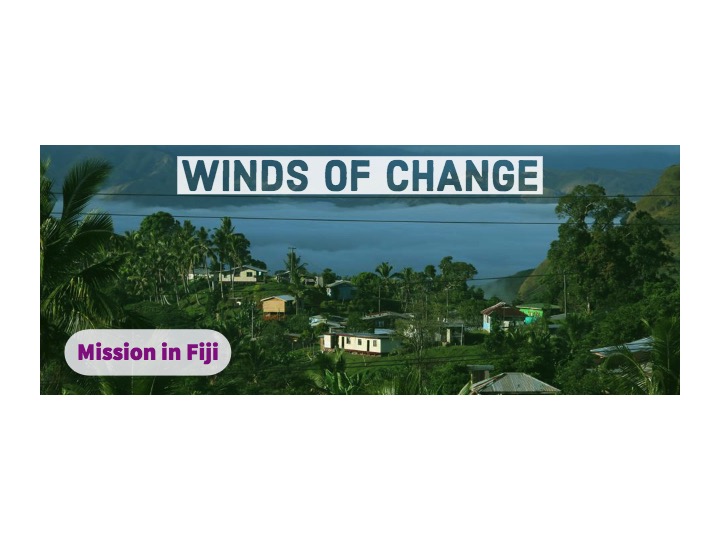Winds of Change
It is winter in the south. Winter in the tropics is not decorated with snow or below-zero temperatures, but rather cool winds and beautiful sunshine graces the Pacific. For the people of the Pacific, especially in the south and central Pacific, winter is a time for celebration. This is because from November to April we have our cyclone season. During this time, we have excessive rainfall and floods, lots of landslides and rough seas resulting in many of our seafarers going missing at sea. In the month May our winter begins, and with it, gentle sunshine for cultivating new land and planting our yams and other root crops essential to the diet of Pacific islanders. It is also nice to have the cool breeze of the tropical Pacific lowering the heat.
Fiji is preparing for election. The political weather is not so favorable. As a nation with a history of military coups in the last 30 years, we pray and hope for the best. The current government is led by a former military commander who removed our democratic elected government in 2006. The opposition party is also led by another former military commander who started the first coup ever in Fiji in 1987.
The church, through the Fiji Council of Churches, is doing what it can to maintain peace and justice. NGO’s and the UN office in the region have recognized the central role the church plays in keeping order in the country. The Fiji Council of Churches has filed petitions against the government and even the opposition for unjust decrees and legislation. Despite this positive move by the churches in Fiji, there is still a need to draw a fine line between Church and State.
Fiji as a country is predominantly Christian. The other religions that exist in the country are Islam and Hinduism. The church needs education on how to live peacefully and harmoniously with other religions. Religion and race have been the main issues brought up during all the coups in Fiji. Although the military was taking the leading role in the political unrest, it was the church that stood behind them.
In the coming months, the Pacific Conference of Churches will hold its General Assembly in Auckland, New Zealand. Regional issues that will be discussed focus on the free determination of West Papua, seabed mining, and cleaning of the moana, the ocean. There will be administrative changes as well in the Pacific Conference of Churches and its theological institutions, the Pacific Theological College and South Pacific Association of Theological Schools.
With regard to theology, the Pacific theological College together with the University of the South Pacific, the National University of Fiji, and Pacific Association of Non-Governmental Organization co-hosted the Inaugural Pacific Philosophy Conference, where Oceanian/Pacific scholars from diverse disciplines, gathered to develop a Pacific understanding of life. These philosophies challenge the idea of capitalism, entrepreneurship, and try to find a Pacific economy that derives from our cultural way of life. This is new to many institutions, but the Pacific Theological College has done this since its establishment in 1965, developing theologies that use indigenous knowledge and cultural lifestyles as the foundation for their expressions of faith and Christianity.
Niko Sopepa serves with the Pacific Conference of Churches in Fiji. His appointment is made possible by your gifts to Disciples Mission Fund, Our Church’s Wider Mission, WOC, OGHS, and your special gifts.

